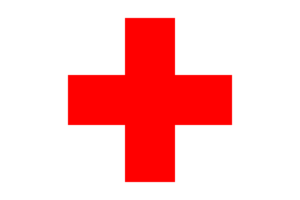How does a well-paying, secure, and continually growing job sound? Enticing, I would assume. Pursuing a job in health care could lead you to a job fitting all of those characteristics. Health care is an enormous field with jobs for every type of student. However, the sad truth is that our health care system is significantly flawed. Despite being one of the highest-income nations and spending the most on health care, we are not ranked highly in the quality of health care in comparison to other countries. Some of the problems that plague our health care system include equality of coverage, the increase in chronic diseases, and uninsured Americans. The American health care systems need young, educated, innovative, and diverse groups of people to take on these challenges. The best place to find these types of people is on college campuses.
For some, a job in health care may be a family tradition or an acquired passion. Common higher education health occupations include doctors, nurses, physician assistants, pharmacists, dentists, and therapists. The path to these professions is rewarding, but it’s certainly not an easy task. These jobs require proficiency in sciences such as chemistry, biology, physics, and anatomy & physiology. Outside of sciences, students will take courses in psychology, higher-level mathematics, and many others. Prospective students must put their best effort into these courses, because getting into one of these professional schools is highly competitive. For example, many schools of medicine have, at most, a 10% acceptance rate. According to Princeton Review, the average GPA requirement to get into medical school is around 3.7 on a 4.0 scale.
Professional schools often give an average GPA or test scores of the recently admitted students. However, just because you are below the average does not mean you will not get acceptance into their program. Many people with scores and GPA’s below and above the norm can be admitted. The best thing a student can do is try their best to bring forth good results when it comes to academia.
The common question is, how do you pull off the A’s in the challenging science courses? In terms of my experience, familiarizing yourself with the terms is always my first step. For example, if we are in anatomy & physiology class and we are studying the digestive system, try and memorize the terminology. Understanding a system without understanding the terms within it is an inefficient way of learning. When you know the terminology, the next step would be to connect them. This process allows you to understand topics as a whole. It is not as easy as that, but you will come to find that a lot of these classes are connected and come around full circle.
Although professional schools put a great emphasis on grades, what you do with your time out of school is equally as important. Many professional schools do prefer applicants with extracurriculars. Some standard extracurriculars that are extremely valuable when applying to professional schools are shadowing and volunteer experiences. In terms of volunteering, there are plenty of opportunities available for students to find. Hospitals like Stony Brook Hospital, St. Catherine of Siena, and the Department of Veterans Affairs all offer volunteering opportunities. Typically, an online or written application is required. Shadowing, on the other hand, can be a much harder position to acquire. Shadowing requires a professional to agree to have a student follow them around during their workday, which can be risky for both the professional and the student. Similarly, the Health Insurance Portability and Accountability Act (HIPAA), which focuses on patient confidentiality, is another reason why shadowing may be a hassle. For those of you who may know a health professional or have a connection may make getting a shadowing opportunity easier. The key to getting into shadowing and volunteer opportunities is to be persistent and being able to network.
Experience in entry-level medical field jobs is always a plus. Getting a job as a certified nursing assistant, a scribe, technician, or medical assistant are all ways of showing schools you have an interest in health care. Participating in summer programs and internships are another excellent way to enhance your skills and build a more appealing application for professional schools. A program I recommend is the Summer Health Professions Education Program (SHPEP). SHPEP is a six-week experience hosted by 12 universities nationwide, that allows pre-health students to gain exposure to health-related fields they hope to pursue. The program has various health professionals mentor students, provide workshops, classes, and networking opportunities. The best part is the program is it’s free. All expenses are graciously covered by the Robert Johnson Foundation, and all participants receive a stipend.
As a closing word of advice for prospective health care students, you want to try and find an inspiring reason for why you want to become a health care professional. Health care needs knowledgeable and compassionate individuals. The field requires us to listen to patients, put ourselves in their shoes, and try our best to provide them with adequate care. If you are not looking to have direct contact with patients you may be more suited for a job in health care administration, education, technology, or laboratories. To those of you reading, I hope that you will consider a career in health care to help change the narrative. I wish you all the best on your journeys wherever they may take you.
